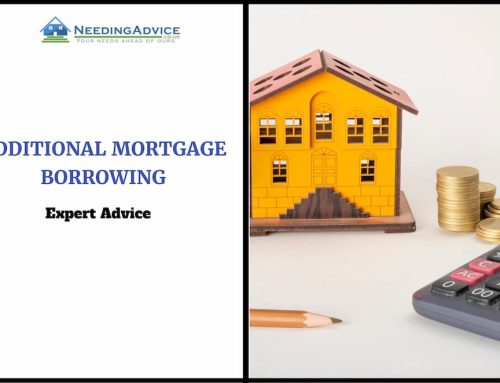As retirement approaches, many seniors and retirees are faced with the challenge of supplementing their income to meet their financial needs. For those who own a home, reverse mortgages can be an attractive option that allows them to tap into the equityThe difference between the value of the property and the amo... of their property without having to sell or move. However, reverse mortgages are not without their risks and drawbacks, and it’s important to fully understand the eligibility criteria, the application process, and the potential implications before making a decision. In this article, we’ll provide a comprehensive guide to reverse mortgages in the UK finance market, covering everything you need to know to make an informed choice. We will also answer the frequently asked questions for these mortgages, such as:
What are Reverse Mortgages, and How Do They Differ from Traditional Mortgages?
Who Can Qualify for a Reverse Mortgage?
What are the various advantages and disadvantages of Reverse Mortgages?
What are some current statistics about Reverse Mortgages in the UK?
What types of scams are associated with reverse mortgages in the UK?
What are Reverse Mortgages, and How Do They Differ from Traditional Mortgages?
A reverse mortgage is a type of residential mortgage that allows homeowners aged 55 and over to access the equity in their homes without having to make monthly mortgage payments. Instead, borrowers are allowed to draw funds from their home’s equity as lump sums or a line of credit, with repayment typically required when the property is sold or when the borrower dies. The main difference between traditional mortgages and reverse mortgages is that with the latter, no monthly payments are required until after the loan is fully repaid.
Who Can Qualify for a Reverse Mortgage?
In the UK, to qualify for a reverse mortgage, you must be at least 55 years old and own a property that is worth more than a certain amount.
The exact amount varies depending on the lender, but it’s typically around £70,000. You must also have little to no mortgage left on the property or be able to pay off the existing mortgage with the proceeds from the reverse mortgage.
Additionally, the property must be your primary residence and located in the UK. Finally, the lender will assess your financial situation to ensure you have the ability to maintain the property and meet the ongoing expenses, such as insurance and property taxes.
What are some current statistics about Reverse Mortgages in the UK?
Here are some statistics about reverse mortgages in the UK as per the FT adviser publication:
- According to research by Just Group, even retirees on the lowest income (average of £7,619 a year) have home ownership levels of 89% in the UK.
- The Equity Release Council’s Spring 2018 report shows that the range of equity release products in the UK is growing by a quarter each year.
- Older homeowners in the UK are releasing almost three times as much equity from their homes than they did two years ago.
- The UK industry seems to be facing fewer issues than those experienced in the US a decade ago, largely due to the fact that product sales are overwhelmingly through financial advisers, lenders are careful about the amount they let customers withdraw, and the industry is well regulated.
If you are interested in such mortgages, you can always contact our team of expert mortgage brokers, who can help you with the application process.
What are the various advantages and disadvantages of Reverse Mortgages?
Are you considering a reverse mortgage? It’s important to understand the advantages and disadvantages before making a decision. Here’s a comprehensive guide to help you out.
Advantages of Reverse Mortgages:
- Access equity without selling your property
- Tax-free money
- No restrictions on use of funds
- No monthly mortgage payments
- Flexibility to move
- Inheritance protection
- No negative equityA situation where the value of the property is less than the... guarantee
Disadvantages of Reverse Mortgages:
- High costs over time
- Potential ineligibility for means-tested benefits
- Recipients of gifted equity may have to pay inheritance tax
- Higher interest rates
- Fees and legal costs may apply
- Lack of protection against repossession, eviction, and negative equity from non-Equity Release Council lenders
Overall, reverse mortgages offer many benefits but also come with some drawbacks. It’s important to consult with a financial advisor before deciding if a reverse mortgage is right for you.
What is the application process for a reverse mortgage in the UK, including assessment, fees, and legal requirements?
In the UK, the application process for a reverse mortgage involves several steps.
- Initial Inquiry: The first step is to contact a financial advisor who specializes in equity release. They will provide you with information about the process and answer any questions you may have.
- Assessment: The next step is to undergo an assessment to determine if you are eligible for a reverse mortgage. This includes a property valuation, a financial assessment to ensure you can afford the repayments, and a discussion of your needs and goals.
- Legal Requirements: Once you have been approved for a reverse mortgage, you will need to seek independent legal advice to understand the terms and conditions of the loan. You will also need to sign a contract that outlines the fees, interest rates, and repayment terms.
- Fees: Reverse mortgages come with fees that can include an application fee, valuation fee, legal fees, and administrative fees. It’s important to understand all of the costs involved before proceeding with the loan.
- Disbursement: After all the legal requirements have been met, the loan amount will be disbursed to you in a lump sum, regular payments, or a combination of both.
It’s important to note that reverse mortgages are regulated by the UK Equity Release Council, which sets standards for providers to ensure that customers are protected. Overall, the application process for a reverse mortgage in the UK involves careful consideration of eligibility, fees, and legal requirements to ensure that it is a suitable option for your financial needs.
What are some alternative financing options for retirees and seniors in the UK besides reverse mortgages?
As a mortgage broker in the UK, I would suggest that retirees and seniors explore other financial options before deciding on a reverse mortgage. One such option is downsizing, which involves selling your current property and buying a smaller, less expensive one. This can release equity, and the leftover money can be used to supplement your retirement income.
Another option is equity release schemes, which allow you to release the equity in your home without having to sell it. This can be done through a variety of products, such as lifetime mortgages or home reversion plans. These options should be considered carefully, and it is important to seek independent financial advice to ensure that they are the right choice for you.
What types of scams are associated with reverse mortgages in the UK?
Reverse mortgage scams in the UK are not as prevalent as in some other countries, but they do exist. Here are some of the most common scams related to reverse mortgages in the UK:
- Unsolicited phone calls: Scammers may call seniors and offer them reverse mortgages without the senior requesting the information.
- High-pressure sales tactics: Some companies may use high-pressure sales tactics to try to get seniors to sign up for a reverse mortgage. They may make false promises or scare tactics to convince seniors to sign up.
- Fraudulent investments: Some scammers may offer seniors fraudulent investments, which they claim are backed by the equity in their home. They may offer unrealistic returns or make promises that are too good to be true.
- Home improvement scams: Some companies may offer seniors home improvement services, such as roof repairs or landscaping, which they claim will increase the value of their home. They may charge exorbitant fees for these services or perform shoddy work.
It’s important for seniors to be cautious and do their research before agreeing to a reverse mortgage or any other financial product. They should only work with reputable lenders and financial advisors who are licensed and registered with the appropriate regulatory authorities.
Next Steps
In conclusion, reverse mortgages can be a viable option for retirees and seniors who need additional income to support their lifestyle. While there are some advantages, such as accessing equity without selling the property and no requirement for monthly payments, there are also some disadvantages, including potentially high costs and loss of means-tested benefits. It is important to understand the application process, fees, and legal requirements before considering a reverse mortgage. It is also worth exploring other financial options, such as downsizing or equity release schemes, and being aware of potential scams in the reverse mortgage industry. As with any major financial decision, it is important to do thorough research, seek professional advice, and carefully consider all options before making a final decision. If you are interested, you can contact our team of specialist mortgage advisers.
FAQs
Can I get a reverse mortgage loan in the UK?
Yes, you can get a reverse mortgage loan in the UK. The process for getting one is similar to that of any other loan – you’ll need to speak to a lender or financial adviser who specialises in reverse mortgages and work with them to find the best product for your needs. As part of the application process, they’ll need to assess your suitability and affordability, as well as the value of your home.
What are the risks associated with a reverse mortgage?
Reverse lifetime mortgages involve taking out a loan against the equity in your home, which means you could lose your home if you don’t keep up with repayments. Other risks include high-interest rates and fees, as well as a potential loss of means-tested benefits. It’s important to consider all of these risks before entering into a reverse mortgage agreement.
Which are the best lenders for lifetime mortgages?
There are a number of lenders who offer such mortgages in the UK, including some of the top high-street banks and specialist mortgage providers. It’s important to compare different products and research lenders carefully before deciding which one is right for you.
Make sure to check their interest rate, fees, payment terms, and customer service record when comparing lenders. It may also be worth consulting with a financial adviser to see if they can help you find the best product for your needs.
How a specialist broker can help you with such mortgages?
A specialist broker can help you with mortgages by providing advice and guidance on the best product for your needs. They can assist in researching different lenders, comparing their different products, and finding a suitable lender for your financial situation. A broker will also be able to explain the legal implications of taking out a this mortgage and provide information about any associated risks. In addition, they can offer advice on how to make sure you can keep up with payments, as well as any other relevant information.
What Are the Current Reverse Mortgage Loan Interest Rates?
At present, the interest rates for reverse mortgages begin at 3.1%, and the mean interest rate is slightly under 5%.






